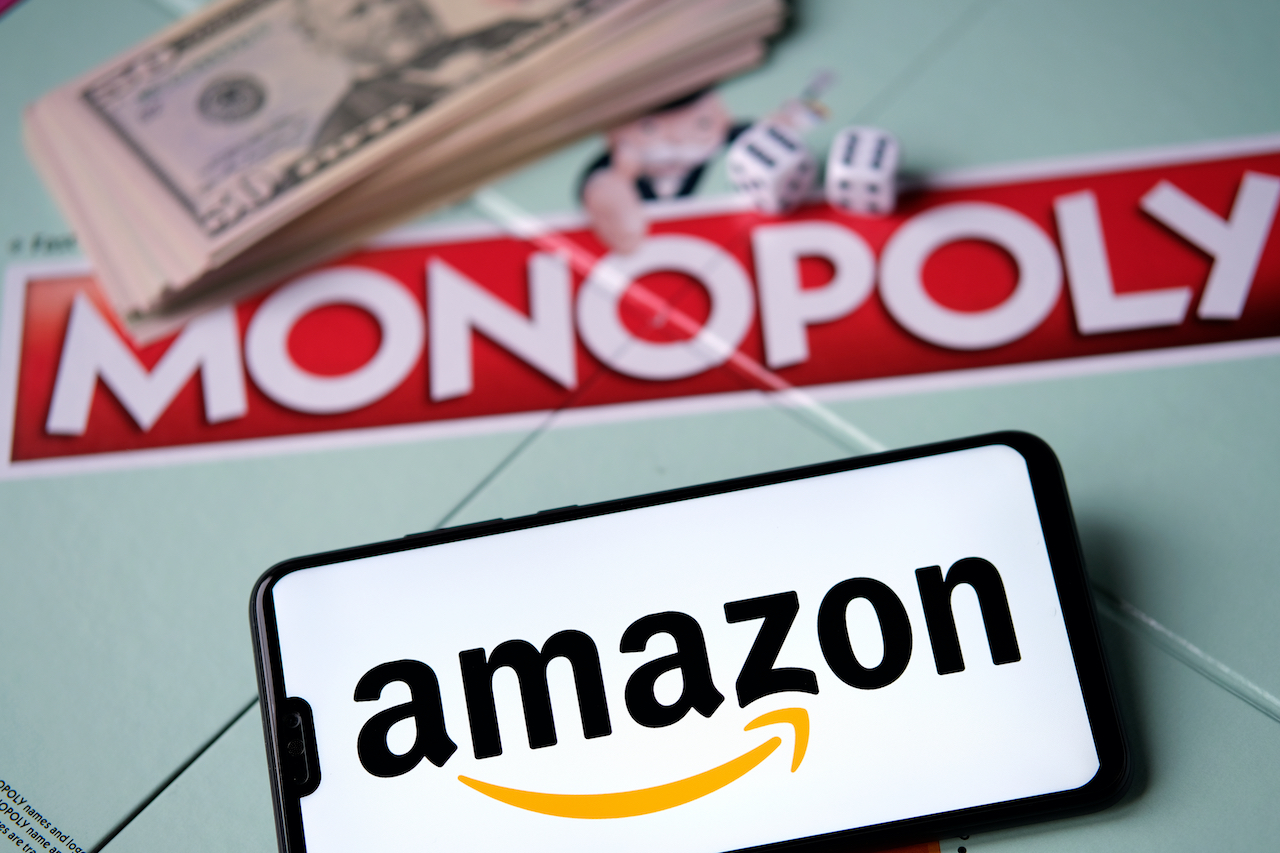
Colin Todhunter
Worldwide corporations are colonising India’s retail area through e-commerce and damaging small-scale physical retail and countless incomes.
Walmart participated in India in 2016 with a US$ 3.3 billion take-over of the online retail start-up Jet.com. This was followed in 2018 with a US$ 16 billion take-over of India’s biggest online retail platform, Flipkart. Today, Walmart and Amazon manage nearly two thirds of India’s digital retail sector.
Amazon and Walmart have a record of utilizing predatory prices, deep discount rates and other unfair organization practices to bring in customers to their online platforms. A number of years earlier, those two business generated sales of over US$ 3 billion in just six days during Diwali. India’s small retailers reacted by calling for a boycott of online shopping.
If you would like to know the eventual fate of India’s local markets and little sellers, look no further than what United States Treasury Secretary Steven Mnuchin stated in 2019. He stated that Amazon had “ruined the retail industry across the United States.”
Amazon’s business practices
In the United States, an investigation by the House Judiciary Committee concluded that Amazon applies monopoly power over many little- and medium-size companies. It called for separating the business and managing its online market to guarantee that sellers are dealt with relatively.
Amazon has spied on sellers and appropriated data about their sales, expenses and suppliers. It has actually then used this details to create its own competing versions of their products, often giving its variations exceptional positioning in the search results page on its platform.
The Institute for Regional Self-Reliance (ILSR) released a revealing file on Amazon in June 2021 that talked about these issues. It also notes that Amazon has actually been caught using its venture capital fund to invest in start-ups just to steal their concepts and develop rival product or services.
Furthermore, Amazon’s dominance permits it to operate as a gatekeeper: retailers and brand names should sell on its website to reach much of the online market and changes to Amazon’s search algorithms or offering terms can trigger their sales to vaporize over night.
Amazon likewise makes it hard for sellers to minimize their reliance on its platform by making their brand name identity practically unnoticeable to buyers and avoiding them from building relationships with their clients. The company strictly restricts contact in between sellers and customers.
According to the ILSR, Amazon obliges sellers to purchase its warehousing and shipping services, despite the fact that numerous would get a much better offer from other suppliers, and it obstructs independent services from using lower costs on other sites. The company likewise routinely suspends sellers’ accounts and seizes stocks and cash balances.
The Joint Action Committee versus Foreign Retail and E-commerce (JACAFRE) was formed to resist the entry of foreign corporations like Walmart and Amazon into India’s e-commerce market. Its members represent more than 100 national groups, consisting of major trade, workers’ and farmers’ organisations.
JACAFRE released a statement in 2018 on Walmart’s acquisition of Flipkart, arguing that it undermines India’s financial and digital sovereignty and the livelihoods of millions in India. The committee stated the offer would result in Walmart and Amazon controling India’s e-retail sector. It would likewise allow them to own India’s crucial consumer and other economic information, making them the country’s digital overlords, signing up with the ranks of Google and Facebook.
In January 2021, JACAFRE released an open letter stating that the 3 brand-new farm laws, passed by parliament in September 2020, centre on enabling and facilitating the unregulated corporatisation of farming worth chains. This will efficiently make farmers and small traders of farming produce ended up being subservient to the interests of a couple of agrifood and e-commerce giants or will remove them totally.
Although there was strong resistance to Walmart entering India with its physical shops, online and offline worlds are now merged: e-commerce companies not only control information about consumption however likewise manage information on production and logistics. Through this control, e-commerce platforms can shape much of the physical economy.
What we are experiencing is the deliberate elimination of markets in favour of monopolistic platforms.
Bezos not invite
Amazon’s move into India encapsulates the unjust defend space in between regional and worldwide markets. There is a relative handful of multi-billionaires who own the corporations and platforms. And there are the interests of numerous millions of suppliers and numerous small-scale enterprises who are concerned by these rich individuals as mere collateral damage to be displaced in their mission for ever-greater earnings.
Thanks to the assisting hand of different COVID-related lockdowns, which ravaged small businesses, the wealth of the world’s billionaires increased by $3.9 tn (trillion) between 18 March and 31 December 2020.
In September 2020, Jeff Bezos, Amazon’s executive chairman, could have paid all 876,000 Amazon staff members a $105,000 perk and still be as wealthy as he was prior to COVID. Jeff Bezos– his fortune built on unprincipled techniques that have actually been well documented over the last few years– increased his net wealth by $78.2 bn throughout this duration.
Bezos’s strategy is clear: the plunder of India and the elimination of countless little traders and sellers and area mommy and pop shops.
This is a man with few scruples. After returning from a short flight to area in July, in a rocket developed by his private area business, Bezos stated throughout a news conference:
I also wish to thank every Amazon staff member and every Amazon consumer due to the fact that you men paid for all of this.”
In reaction, United States congresswoman Nydia Velazquez composed on Twitter:
While Jeff Bezos is all over the news for paying to go to space, let’s not forget the truth he has actually produced here on Earth.”
She added the hashtag #WealthTaxNow in reference to Amazon’s tax dodging, revealed in many reports, not least the Might 2021 research study ‘The Amazon Technique: How to make the most of the global state system to avoid paying tax‘ by Richard Phillips, Senior Citizen Research Fellow, Jenaline Pyle, PhD Candidate, and Ronen Palan, Professor of International Political Economy, all based at the University of London.
Little wonder that when Bezos visited India in January 2020, he was barely welcomed with open arms.
Bezos praised India on Twitter by publishing:
Dynamism. Energy. Democracy. #IndianCentury.”
The ruling party’s top male in the BJP foreign affairs department countered with:
Please inform this to your workers in Washington DC. Otherwise, your beauty offensive is likely to be wild-goose chase and money.”
A fitting reaction, albeit perplexing given the current administration’s proposed sanctioning of the foreign takeover of the economy, not least by the unscrupulous interests that will gain from the current farm legislation.
Bezos landed in India on the back of the nation’s antitrust regulator starting a formal examination of Amazon and with small store owners demonstrating in the streets. The Confederation of All India Traders (CAIT) announced that members of its affiliate bodies throughout the nation would stage sit-ins and public rallies in 300 cities in protest.
In a letter to PM Modi, prior to the see of Bezos, the secretary of the CAIT, General Praveen Khandelwal, declared that Amazon, like Walmart-owned Flipkart, was an “financial terrorist” due to its predatory rates that “forced the closure of thousands of small traders.”
In 2020, Delhi Vyapar Mahasangh (DVM) filed a problem versus Amazon and Flipkart declaring that they favoured particular sellers over others on their platforms by using them affordable charges and preferential listing. The DVM lobbies to promote the interests of little traders. It likewise raised concerns about Amazon and Flipkart participating in tie-ups with cellphone producers to sell phones specifically on their platforms.
It was argued by DVM that this was anti-competitive behaviour as smaller traders could not acquire and offer these gadgets. Concerns were also raised over the flash sales and deep discounts offered by e-commerce business, which could not be matched by small traders.
The CAIT estimates that in 2019 upwards of 50,000 mobile phone sellers were dislodged of business by big e-commerce companies.
Amazon’s internal documents, as revealed by Reuters, suggested that Amazon had an indirect ownership stake in a handful of sellers who made up most of the sales on its Indian platform. This is a problem due to the fact that in India Amazon and Flipkart are legally permitted to function just as neutral platforms that assist in deals in between third-party sellers and buyers for a fee.
Under investigation
The result is that India’s Supreme Court recently ruled that Amazon should deal with examination by the Competition Commission of India (CCI) for alleged anti-competitive service practices. The CCI stated it would penetrate the deep discounts, preferential listings and exclusionary methods that Amazon and Flipkart are declared to have actually utilized to damage competitors.
However, there are powerful forces that have been sitting on their hands as these business have actually been running amok.
In August 2021, the CAIT attacked the NITI Aayog (the influential policy commission believe tank of the Federal government of India) for interfering in e-commerce guidelines proposed by the Customer Affairs Ministry.
The CAIT said that the think tank clearly appears to be under the pressure and impact of the foreign e-commerce giants.
The president of CAIT, BC Bhartia, specified that it is deeply stunning to see such a callous and indifferent attitude of the NITI Aayog whch have remained a silent spectator for so many years when:
… the foreign e-commerce giants have prevented every guideline of the FDI policy and blatantly violated and ruined the retail and e-commerce landscape of the nation however have actually suddenly chosen to open their mouth at a time when the proposed e-commerce guidelines will potentially end the malpractices of the e-commerce business.”
Of course, money talks and purchases influence. In addition to 10s of billions of United States dollars bought India by Walmart and Amazon, Facebook invested US$ 5.5 billion last year in Mukesh Ambani’s Jio Platforms (e-commerce retail). Google has also invested US$ 4.5 billion.
Because the early 1990s, when India opened up to neoliberal economics, the country has ended up being increasingly dependent on inflows of foreign capital. Policies are being governed by the drive to draw in and keep foreign investment and preserve ‘market confidence’ by delivering to the demands of global capital which ride roughshod over democratic principles and the requirements of hundreds of millions of normal people. ‘Foreign direct investment’ has thus become the holy grail of the Modi-led administration and the NITI Aayog.
The CAIT has actually urged the Customer Affairs Ministry to carry out the draft customer security e-commerce guidelines at the earliest as they remain in the very best interest of the consumers along with the traders of the nation.
Meanwhile, the CCI most likely will complete its investigation within 2 months.


